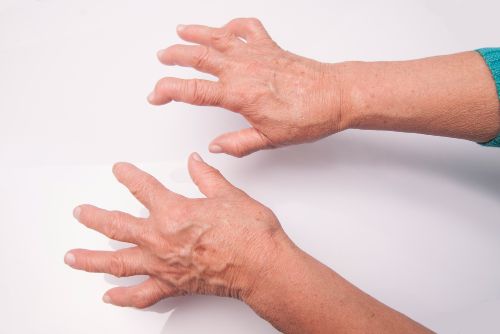Palindromic rheumatism is an inflammatory condition that mainly affects the hands and feet, and it can cause sudden attacks of pain, swelling and stiffness in these joints. These attacks may last from a few hours to several days, and people may have them daily or a few times a year.
Symptoms can vary from person to person and are not always easy to distinguish from other forms of arthritis, especially when the symptoms come and go. Doctors can make a diagnosis by asking questions, looking at your joints and taking blood tests or scans to find out more about what is happening.
It is thought that the inflammatory process in people with palindromic rheumatism is caused by an immune system reaction, similar to the one in other autoimmune conditions such as Sjogren’s syndrome or lupus. This means that your body is creating anti-bodies – the same as if you had an infection – that are attacking the joint cells and tissues.
The inflammation of people with palindromic rheumatism may be more severe than in other types of inflammatory arthritis. For example, an ultrasound of someone with PR shows that the joint is often more inflamed than it is in other types of inflammatory arthritis.
There is no known reason why this happens, but scientists are trying to understand more about the cause of palindromic rheumatism and how it is treated. Researchers also want to know how it affects different people, and how it can be diagnosed.

If your attacks are recurring, you should talk to your doctor and get treatment as soon as possible. Your GP can refer you to a rheumatologist (roo-ma-tolo-jist), who will be able to diagnose and treat the condition.
You may need to take certain medication, like DMARDs or NSAIDs, to ease your symptoms and stop them coming back. You may also need to have regular blood monitoring to check that your liver, kidneys and blood count are okay.
Taking these drugs can help to ease the pain and swelling that comes with palindromic rheumatism, but they can have side effects. For example, if you are breastfeeding, it’s best to avoid taking these medications, as they can cause problems for your baby.
Other treatments include pain relief medications and steroid injections. These may be injected directly into the joint, into the soft tissues around it or into a muscle to help reduce the severity of your attack.
Your doctor will try to prescribe the right type of medication to reduce your attacks of palindromic rheumatism. Hydroxychloroquine is the most commonly prescribed medication, but some people need more potent ones, such as sulfasalazine or methotrexate. They can be very effective in reducing the number of attacks you have and lowering your pain and swelling.
If you have any problems with these medications, discuss them with your doctor. They should be able to offer advice and guidance on how to best use them.
It can be very hard to live with palindromic rheumatism, and it’s not easy to get an accurate diagnosis. But it’s worth persevering, as you’re likely to have a more successful treatment plan if you work with your doctor.








